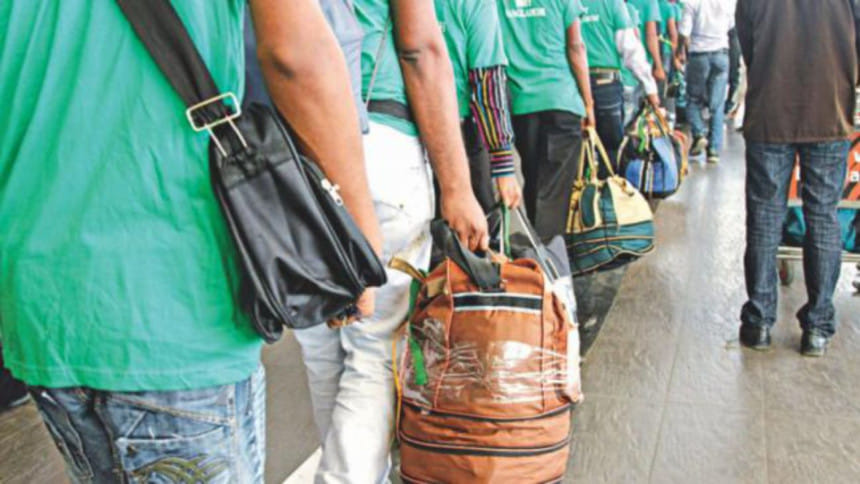Japan emerges as lucrative labour market

Developing news intro Developing news intro Developing news intro Developing news intro Developing news intro Developing news intro Developing news intro Developing news intro Developing news intro Developing news intro Developing news intro Developing news intro
Title Two
Title Two body Title Two body Title Two body Title Two body Title Two body Title Two body Title Two body
Title One
Title One body Title One body Title One body Title One body Title One body Title One body Title One body Title One body

With numerous job opportunities and the scope to earn a decent living, Japan has emerged as a lucrative labour market for skilled Bangladeshi migrant workers.
Bangladesh and Japan signed separate Memorandums of Cooperation (MoC) in 2018 and 2019 on the recruitment of Bangladeshis under Japan's "technical intern training" and "specified skilled worker" schemes.
There are also opportunities for Bangladeshis to work as professionals in Japan, such as professors, researchers, and engineers, according to the website of the Bangladesh Embassy in Tokyo.
However, the proportion of Bangladeshis sent to rich East Asian countries has been very low compared to other countries accepting migrant workers.
According to the Bureau of Manpower, Employment and Training (BMET), Bangladesh sent 3,030 migrant workers to Japan between 1999 and May this year.
In the first five months of this year, 290 migrant workers went to Japan. Last year, a total of 508 migrant workers went there, shows BMET data.
Alongside BMET and state-owned Bangladesh Overseas Employment Services Ltd (BOESL), about 70 private recruiting agencies are approved to send workers to Japan, as per a list from the expatriates' welfare ministry.
Ali Haider Chowdhury, secretary general of the Bangladesh Association of International Recruiting Agencies, said that in Japan, there are currently job openings in a variety of sectors, including construction, industry, and agriculture.
He said the process of sending workers to Japan is different from that of the traditional labour market in the Gulf since aspirant migrants need to have, among other qualifications, proficiency in the Japanese language.
He added that it is possible to send several thousand workers to Japan each year after preparing them by providing the necessary skills and language training.
According to a news report in The Japan Times, when the "Specified Skilled Worker" programme was first introduced in April 2019, the Japanese government set the maximum number of specified skilled workers it would accept in fiscal 2019-23 at 345,150.
On the other hand, Kyodo News, a Japanese news agency, said in a report published on June 9 that there were about 150,000 specified skilled workers in Japan as of March 2023.
The scheme was introduced to attract foreign workers in response to Japan's severe labour shortage caused in part by a declining birthrate, added the report.
Recently, Japan's cabinet approved a plan to expand the scope of industries covered by the blue-collar skilled worker visa, which creates a path to permanent residency for foreigners, it also said.
Besides, Japan introduced the technical training Intern scheme in 1993, as per the Bangladesh mission in Tokyo.
Under the programme, Japan invites technical interns in various fields, including agriculture, fishery, construction, food manufacturing, textiles, and machine and metals, for a stay of three to five years.
A Bangladeshi technical intern in Japan can earn over Tk 1 lakh a month, according to the BOESL website.
Syed Saiful Haque, chairman of the WARBE Development Foundation, said to increase the number of skilled workers sent to Japan under the specified skilled worker scheme, the Bangladesh government can attract Japanese employers by inviting them to Bangladesh.
This way, Japanese employers will have firsthand experience with Bangladesh's workforce.
Till June last year, there were 20,954 Bangladeshis in Japan, according to the website of the Japanese foreign ministry.

 For all latest news, follow The Daily Star's Google News channel.
For all latest news, follow The Daily Star's Google News channel. 



Comments